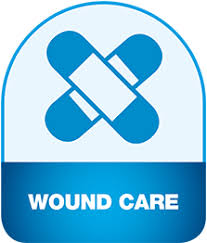
Vincent Maida
University of Toronto
Title: Topical medical cannabis: A new epigenetic paradigm for wound management
Biography
Biography: Vincent Maida
Abstract
Statement of the Problem: The endocannabinoid system is ubiquitous throughout the human body and has recently been found to have a significant representation throughout the integumentary system, both cutaneous membranes and mucous membranes. Topical Medical Cannabis (TMC) based medicines are intrinsically lipophilic and contain both delta-9- tetrahydrocannabinol (THC) and Cannabidiol (CBD) in varying proportions. Given that wound beds are largely lipophilic absorption of lipophilic agents, such as cannabinoids, is enhanced.
Methodology & Theoretical Orientation: A series of n=1 trials were initiated on a cohort of stalled recalcitrant wounds, composed of cases of greater than 12 months duration, were treated with TMC based medicines. All cases were previously afforded with all available Evidence-Based treatments that conformed with local best practices and wound-bed preparation principles. Ten cases were studies for wound analgesia, 10 cases for wound healing, and 4 cases for disease modulation. Etiologies represented within the cohort under study included: Pyoderma Gangrenosum, Leukocytoclastic Vasculitis, Cryoglobulinemia, Antiphospholipid syndrome, Sickle Cell Disease, Lichen Simplex Chronicus, Bowen’s Disease, and Squamous Cell Cancer. Clinically significant analgesia, wound healing, and disease was noted in all cases. The TMC medicines were applied directly applied to wound beds. TMC was very well tolerated and no adverse reactions were observed.
Conclusion & Significance: The highly positive results observed in a cohort of the most challenging recalcitrant cases provokes realistic interpolation that TMC based Medicines may be effective for a broader context within Wound Management. The endocannabinoid system is a viable Epigenetic target and platform for exploring therapeutic options for skin and wound conditions. Therapies based on Topical Medical Cannabis that interact at the level of the endocannabinoid system have significant potential to improve the 3 main target outcomes in wound management, namely, wound analgesia, wound healing, and disease modulation that includes antineoplastic actions.

